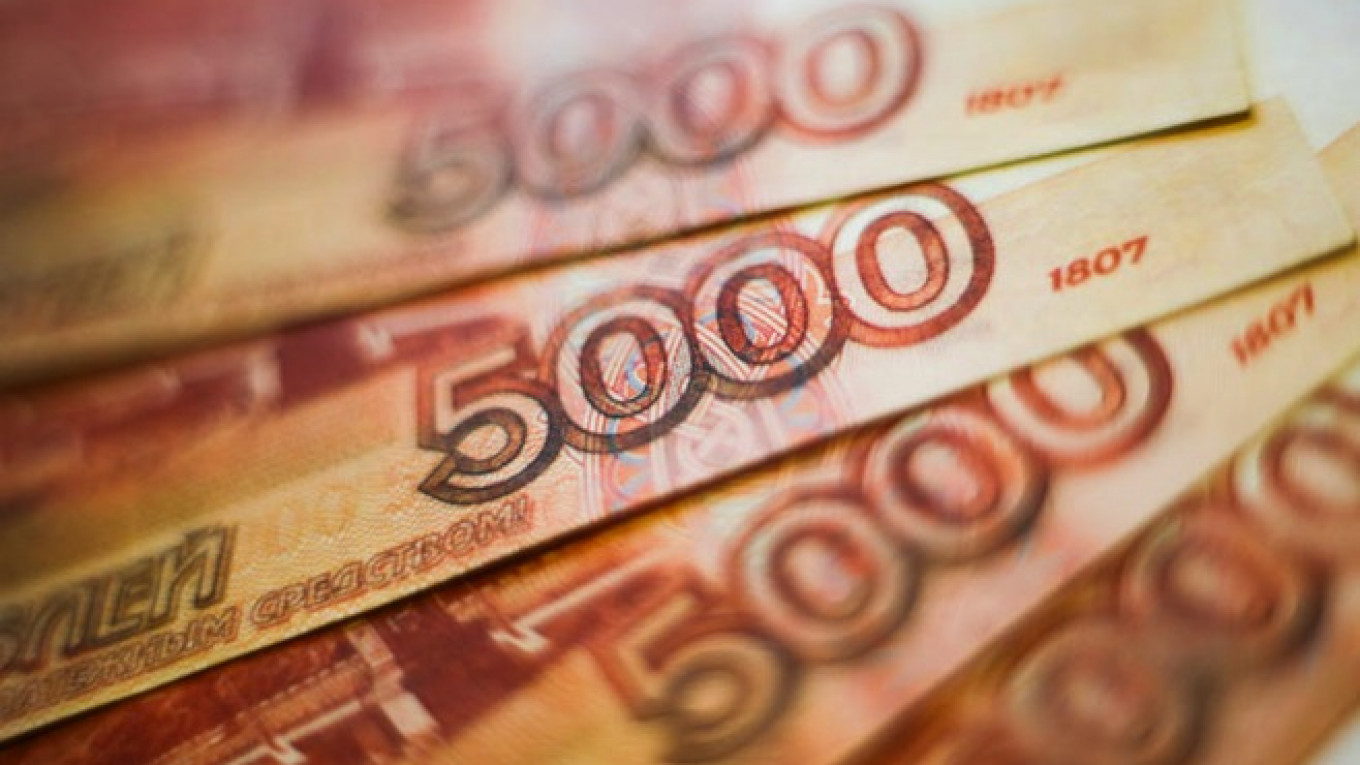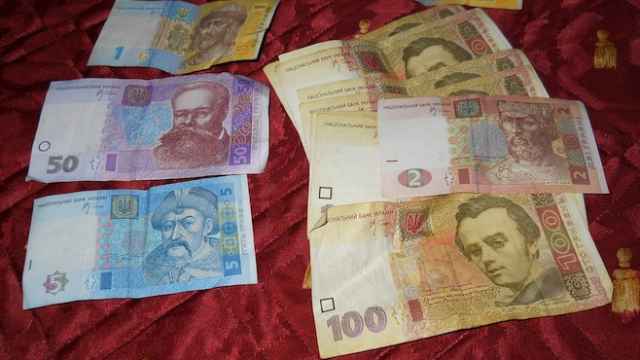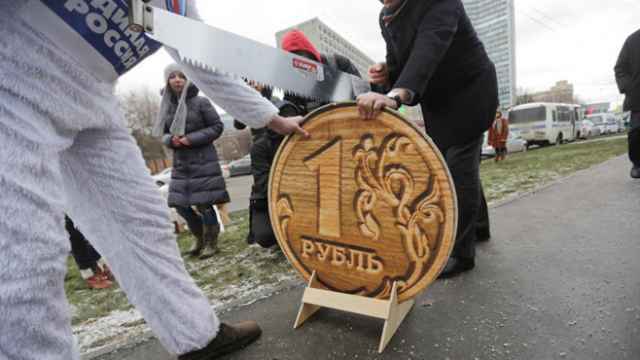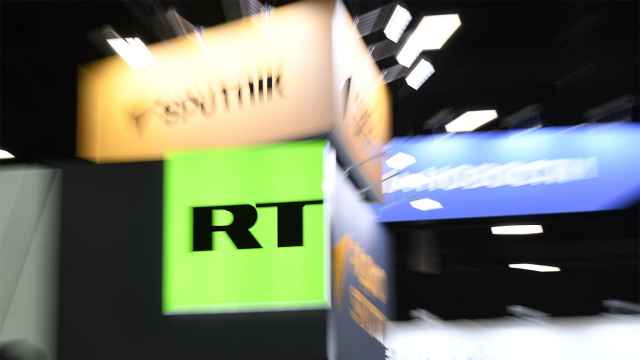The sharp decline in Russia's economy may have almost run its course, official data showed Tuesday, slowed by a huge devaluation of the ruble and heavy government spending on anti-crisis measures.
Recovery prospects are cloudy, however, with many analysts warning of a sluggish rebound at best.
The economy has slumped as a result of Western sanctions linked to the Ukraine conflict and last year's collapse in the price of oil. But the decline now appears to have arrested.
While gross domestic product continued to decline in year-on-year terms in June — down 4.2 percent compared with 4.8 percent in May — seasonally adjusted output fell just 0.1 percent month-on-month.
The figure tallies with other recent data, leading analysts to conclude the decline is close to a bottom — a silver lining to data which still show most macroeconomic indicators sharply down compared with a year earlier.
"It is kind of premature to speak about the recovery in sequential terms, which actually lies ahead," said Alexander Isakov, economist at VTB Capital in Moscow. "But in terms of year-on-year comparisons — the headline figure that everybody focuses on — we are bottoming out."
Divergent Views
Uncertainty about the pace of any recovery is reflected in official forecasts, which present sharply divergent views.
The Economic Development Ministry predicts the economy will grow by 2.3 percent next year after a 2.8 percent decline this year. In contrast, Russia's Central Bank sees the economy growing by only 0.7 percent next year after declining 3.2 percent this year.
Economists polled by Reuters expect 0.5 percent growth next year after a 3.5 percent contraction this year.
Optimists emphasize the huge boost to competitiveness caused by the devaluation of the ruble, which has declined by 40 percent against the dollar over the last year.
While the initial impact of the ruble decline was to boost inflation, cutting into consumer spending, there is little sign of it becoming entrenched through higher wages. Nominal wage growth — 7 percent in June — has been running at less than half the headline inflation rate of 15.3 percent.
The resulting cut in labor costs means that these are now comparable to China's, analysts at Renaissance Capital say, boding well for competitiveness.
Evidence that the devaluation has played a key role in arresting the economic decline is provided by data on industrial profitability and wages, which shows sectors producing tradable goods strongly outperforming, VTB Capital's Isakov said.
"In terms of timing, and judging by the other indicators, we are closely following the path of the recovery of the previous crisis," he said.
Previous Russian economic crises in 1998 and 2008 were both followed by quick recoveries, with devaluations of the ruble playing a key role each time.
But some analysts are skeptical about this policy's effectiveness in the medium term.
"We see a risk that the policy of a weaker exchange rate will preserve the old structure of the economy," Morgan Stanley says, referring to Russia's over-reliance on commodity exports and its lack of high-tech industries.
The weaker ruble helps export-oriented commodity sectors, but may impede the growth of high-tech sectors that rely heavily on imports.
Other analysts emphasize the supportive role played by the government. But there are also major questions about the ability of the state to keep supporting the economy by dipping into its dwindling fiscal reserves.
The Finance Ministry forecasts that its Reserve Fund, currently worth $77 billion, will be 90 percent spent by the end of next year.
Before last year's oil price collapse, Russia based its long-term budget plans on an oil price of $100 per barrel — almost double the present price of just over $50 per barrel.
That implies painful cutbacks in government spending in the years ahead to rebalance the state's precarious finances.
Natalya Orlova, economist at Alfa Bank, emphasized that the medium-term recovery prospects have also been severely limited by chronic underinvestment.
Capital investment by Russian companies, down 7.1 percent year-on-year in June, has now fallen for 19 consecutive months.
Meanwhile, foreign direct investment has been hammered by the crisis in East-West relations. In the first quarter it was just $1.3 billion, down from $12.9 billion in the first quarter of 2014 and $40 billion in the same quarter of 2013.
That is a reminder that the sanctions and the related geopolitical tensions still weigh on the economy even though Russian companies have weathered the immediate financial squeeze caused by restricted access to international capital markets.
"Probably we will lose around 3 percent of GDP this year. Next year we will be catching up, covering this output gap, but there is nothing on top of this which we can generate given the limited resources," Orlova said.
A Message from The Moscow Times:
Dear readers,
We are facing unprecedented challenges. Russia's Prosecutor General's Office has designated The Moscow Times as an "undesirable" organization, criminalizing our work and putting our staff at risk of prosecution. This follows our earlier unjust labeling as a "foreign agent."
These actions are direct attempts to silence independent journalism in Russia. The authorities claim our work "discredits the decisions of the Russian leadership." We see things differently: we strive to provide accurate, unbiased reporting on Russia.
We, the journalists of The Moscow Times, refuse to be silenced. But to continue our work, we need your help.
Your support, no matter how small, makes a world of difference. If you can, please support us monthly starting from just $2. It's quick to set up, and every contribution makes a significant impact.
By supporting The Moscow Times, you're defending open, independent journalism in the face of repression. Thank you for standing with us.
Remind me later.






